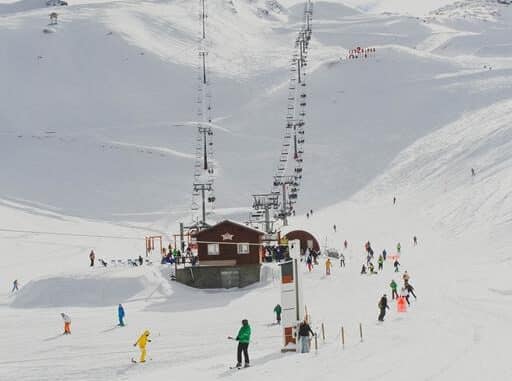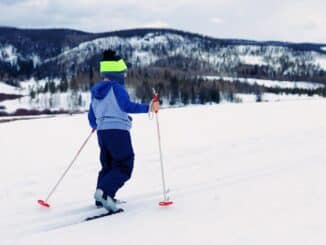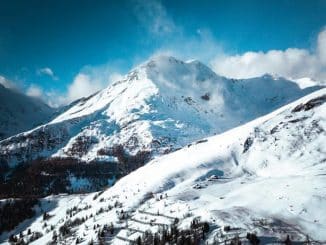
Are you new to skiing or are you looking for an affordable area in Europe to go skiing for a break this winter? Due to COVID-19 travel limitations, many summer vacation plans have been cancelled. Why not prepare ahead for the winter months, either this year or next, so that you may reschedule for some winter fun instead, lockdowns permitting? Skiing costs on average $100-200 / €80-160 per day (less per week), including ski and clothing rental, ski pass, and food. It does not cover lodging, lessons, or any other optional extras.
France’s Les Houches
Given that a ski pass in Chamonix costs roughly €300 during peak season, skiing a little further down the valley in Les Houches, France, will save you a lot of money. Les Houches has defined ski lines ranging from 950 to 1,900 m in length, all with spectacular views of the Mont Blanc Valley, making it ideal for leisure skiers. Make your way to Chamonix’s ski fields if you’re looking for a black run and open-air clubs. They’re only 6 km away.
The average cost of a drink: Head back down the mountain to Les Houches bars for Happy Hour (between 5-7 pm). It’s not precisely chaotic après-ski, but it’s still entertaining.
A ski pass costs on average €45 (£39) per day and €225 (£197) for six days.
To reach there, fly to Geneva Airport and drive to Les Houches (1 hour).
Slovenian Vogel
Vogel is a wonderfully gorgeous ski area that is great for couples or families. Vogel, which overlooks Lake Bohinj, is part of the Triglav national park. The modern cable car whisks visitors from the lake to the slopes in minutes, giving skiers access to primarily treeless terrain with plenty of off-piste opportunities. The nightlife is quiet, but a day trip is easily accomplished with the capital Ljubljana just over an hour away.
A drink will set you back €2 for a beer and €5 (£4.30) for a bottle of wine if purchased in a supermarket.
The usual cost of a ski pass is €33 (£28) for a daily pass and €153 (£132) for a six-day package.
The best way to get there is to fly to Ljubljana and then drive down to Bohinj. There are also private transfers available.
Italy’s Livigno
Tariff-free zone If you’re willing to venture off the beaten path, Livigno provides superb intermediate skiing in an area that should keep advanced skiers and snowboarders happy for a week. One of Livigno’s main draws is its fantastic terrain park, which features pro-sized jumps (think: house-sized!) as well as rails and kickers for regular people. The food and drink prices in and around the slopes are pretty low, making it a favourite hangout for the younger ski set.
The average cost is €3-5 for a beer, depending on the bar.
The usual cost of a ski pass is €247 (£213) for a 6-day pass and €50 (£43) for a day pass.
To reach there, fly to Milan Bergamo and then take a quick bus ride up to Livigno.
The Austrian town of Söll
Söll is a little Tirolean village that is frequently overshadowed by Kitzbuhel, which we nearly appreciate. Even though it’s ideal for families and beginning skiers, it’s still relatively peaceful and economical. Ski Welt, Austria’s largest network of linked ski slopes, includes this resort. Söll, Elmau, and Westendorf are excellent locations for finding a small chalet or ski hotel close to local eateries and bakeries. Tirol’s other claim to fame is its baked goods: Soll has four bakeries, and you must taste kiachl (traditional fried dough) when you’re not on the slopes.
The average price is €4 for a beer and roughly the same for a glass of wine.
A ski pass costs on average €49 (£42) for a day and €240 (£207) for six days.
To get there, fly to Salzburg and then take a shuttle or drive to the resort.



